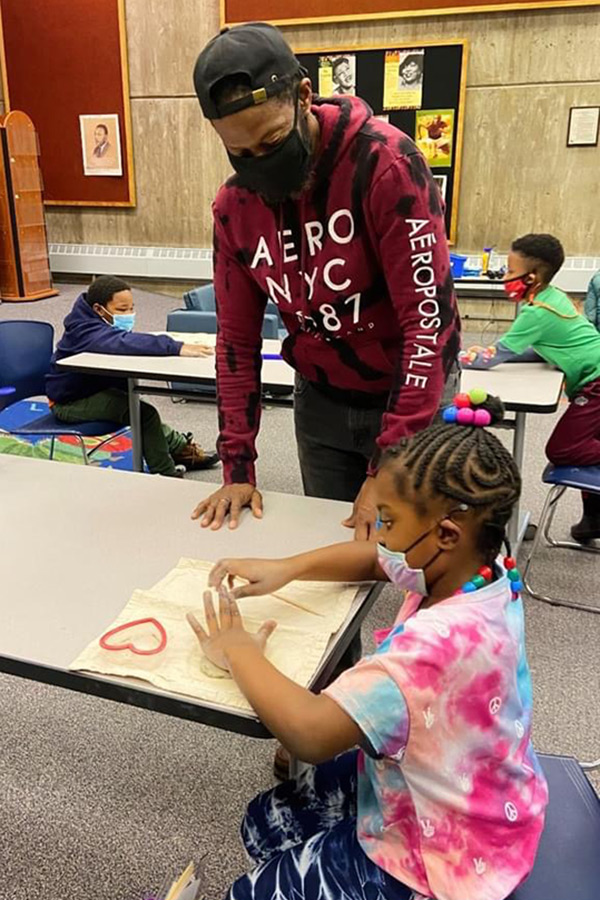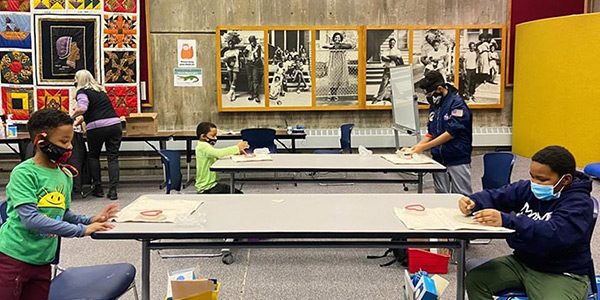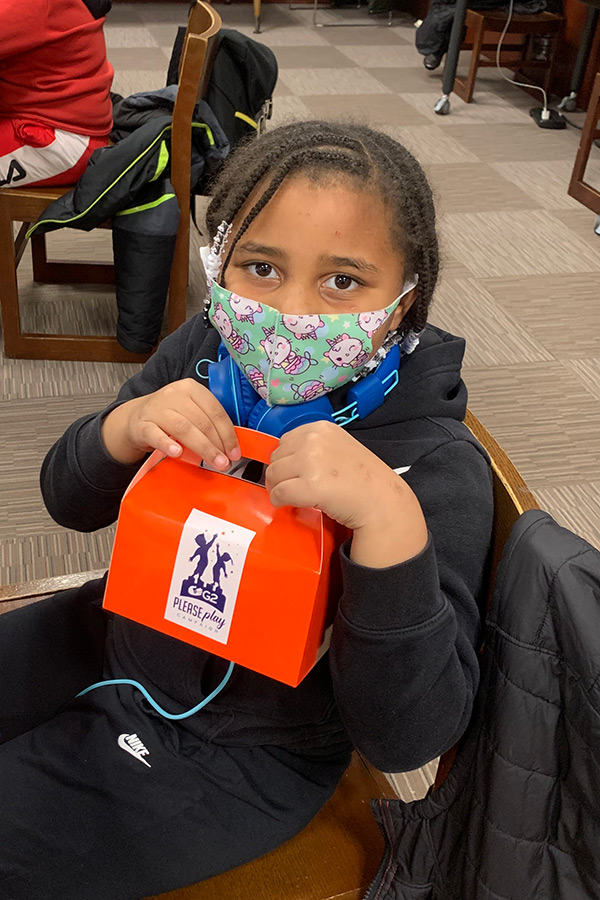Foundation Grant Helps Launch Learning Pods for City Students
When schools didn’t fully reopen for in-person learning in the fall, many working parents were once again faced with how to supervise their children’s remote learning from home.
One solution was launched at four Rochester libraries for 48 students who live in the city, thanks to a $55,000 grant from the Community Foundation. Called ROC City Learning Pods, groups of 12 students ages 4 to 12 have been meeting safely in small groups and supervised by experienced teaching assistants and paraprofessionals who support each student’s distance learning — at no cost to families.

“We knew we had to do something,” says Brittany Rumph, project director of ROC City Learning Pods and lead founder of Rochester Excellence Academy charter school. “Remote learning instantly became an equity issue. Not every family can afford to pay for educators to support their children during a remote learning day, and it was up to us to create something quickly.”
In response to the continuation of remote learning, some organizations began offering space and supervision to students to join learning pods for a fee. More informally, families have gotten together to create their own pods and jointly hire teaching assistants.
The free pods, which run from 9 a.m. to 3 p.m. on weekdays, opened initially at the Phillis Wheatley Library and Lincoln Library in October. Two other pods opened a few weeks later at the Charlotte and Lyell libraries. Eligible students are enrolled in the Rochester City School District or city-based parochial or charter schools.
The grant for this project was the first from the Foundation’s Racial Equity Growth Fund, which was established in 2020 to:
- Support innovative ideas to form nonprofits led by BIPOC (Black, Indigenous, and People of Color);
- Invest in BIPOC nonprofit leaders and their career development; and
- Provide funding for racial equity education and training, primarily for small businesses.
The Foundation grant helped leverage a $30,000 grant from the Max and Marian Farash Charitable Foundation, and Foundation donors contributed an additional $51,500.
Rumph and others found safe, supportive, and easily accessible spaces for children to learn at the Rochester Public Libraries. They were also ideal locations because they have adequate space and furnishings in community meeting rooms and access to stable WiFi.

Each learning pod has 12 students and two or three education professionals and is managed by one program coordinator. Many of those hired had been laid off in August 2020 by the City School District as part of a cost-cutting effort. They are paid $11 to $13 an hour for 30 hours each week.
“We know that the teaching assistants and paraprofessionals are the glue of many classrooms because they develop meaningful relationships with their students and provide one-on-one support during the school day,” says Maya Crane, program officer for equity at the Community Foundation. “These jobs provide an opportunity to use their experience and expertise to help children get the most out of their remote learning.”
A secondary benefit is that working directly with children will allow these essential educators to hone their instructional, professional, and entrepreneurial skills to help further their own careers. Professional development opportunities also will be offered.

When the City School District and other schools began returning to in-person learning in January, Rumph says all Learning Pod employees chose to stay with the program. Flexibility became necessary for families during this transition, too. Some parents chose to keep their children in the pods full-time and others decided to send their children to school two days a week and attend the pods only on remote learning days. “We remain committed to serving families in need through the end of the school year,” Rumph says.
Since opening, the Learning Pods developed two partnerships to enhance the students’ experience. Generation Two provided play kits and virtual play sessions for students in kindergarten to second grade during their down time. Staff from the Flower City Arts Center visited the sites for in-person clay-making classes.